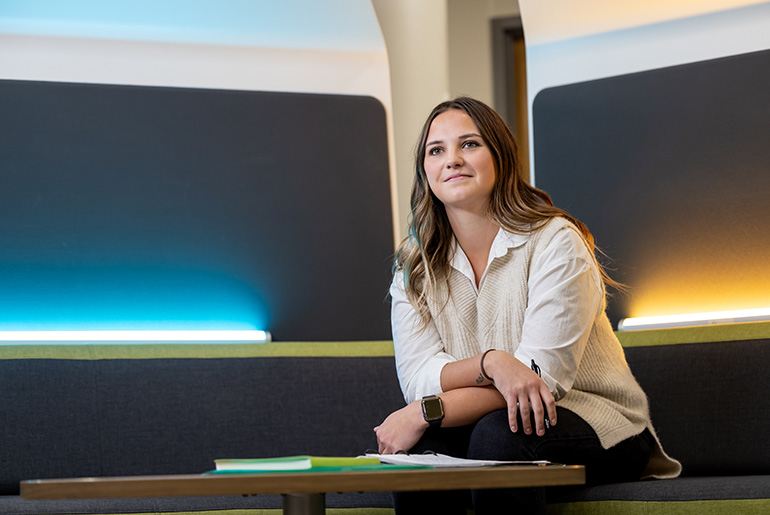Life Lessons in Math
Precision. Patience. Practice. You’ll need them all if you want to be great at math.
That was a lesson UND senior and Mathematics and Secondary Education major Olivia Rike-Norman learned from her Grandma Else.
Grandma Else, aka Else Rike, has a proven track record.
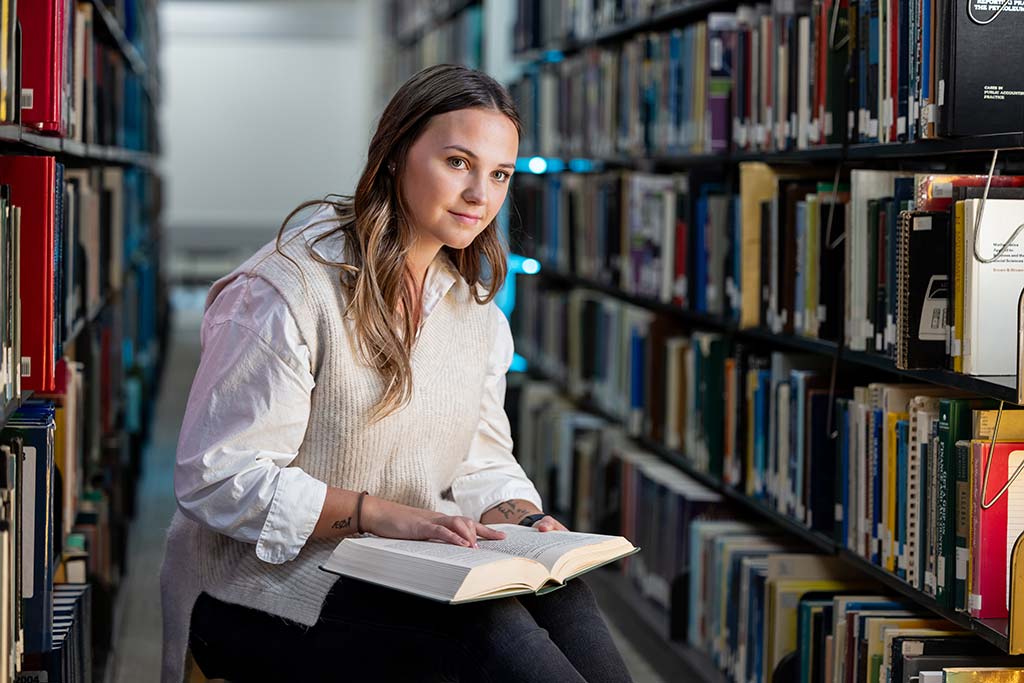
At UND, Olivia discovered her love of math, research and teaching.
“She’s my idol. She’s so smart. She’s 99 and still does taxes by hand for about 60 clients a year,” Norman said. “She’s one of my biggest supporters, and she’s so invested in my academic career.”
It was Grandma Else who encouraged her to take advantage of her own knack for numbers by studying accounting.
But the first-generation college student had other plans.
“I got on the science track and discovered I didn’t love it,” she said. “So, I bounced around the idea of actuarial work or accounting before thinking, ‘Wait, I also like working with kids. Why not be a math teacher?’ It combines so many things I love.”
Ever since, Norman has done nothing but excel. She recently was one of only six students awarded the Rural Student Teaching Experience through the National Science Foundation’s North Dakota EPSCoR (Established Program to Stimulate Competitive Research) Grant. As part of the program, she’ll student teach spring semester 2024 at Central Valley School in Buxton, N.D.
I also like working with kids. Why not be a math teacher?’ It combines so many things I love.
She also earned her way into the Ronald E. McNair Achievement Program, which encourages undergrads to prepare for graduate work by providing research opportunities and faculty mentorships. Further, she earned a US MASTER Scholarship from the National Science Foundation.
She was able to go to Washington, D.C., for a conference and a number of other symposiums to meet and hear from experts in her field.
And she was introduced to research.
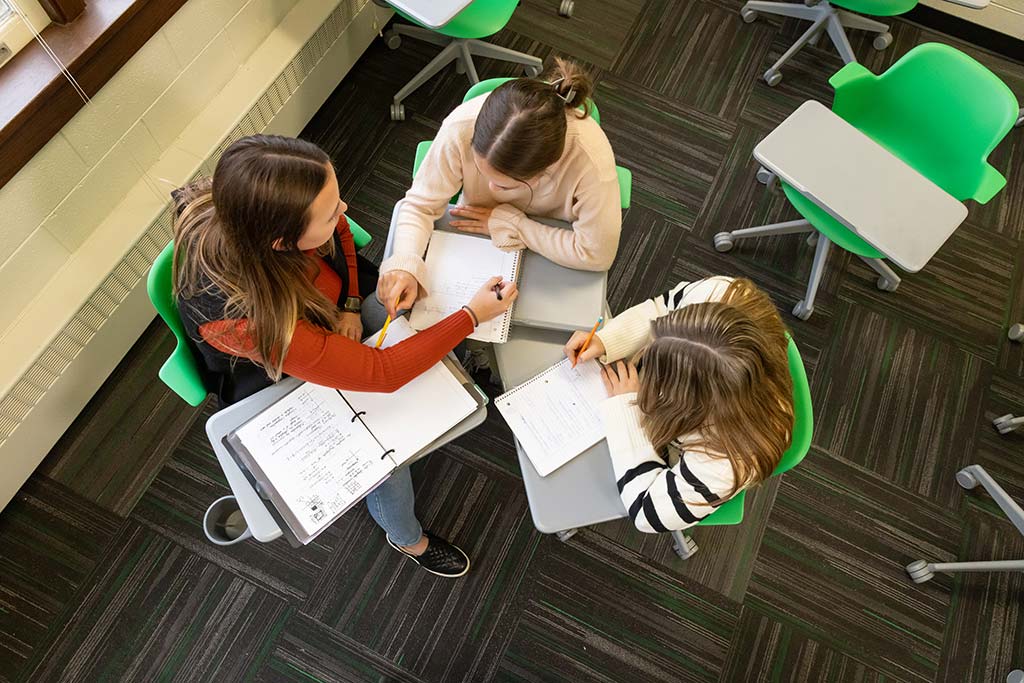
Olivia was recently awarded the Rural Student Teaching Experience through the National Science Foundation’s North Dakota EPSCoR Grant.
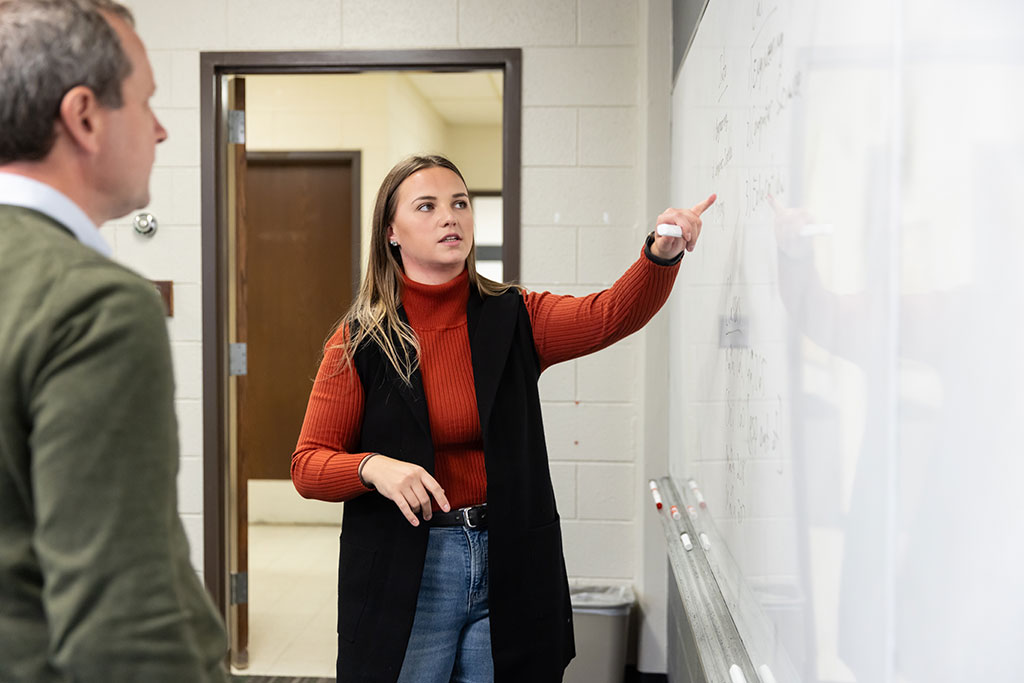
She gets the opportunity to student teach at Central Valley School in Buxton, N.D. in 2024.
“I didn’t know anything about doing research or how important it can be in furthering your education, so I was kind of scared,” Norman said. “How do I research math? That was a huge question.”
But soon she began working with Mathematics Professor Ryan Zerr, and they developed a plan.
I don’t want math to be a roadblock for children.
Knowing so many children struggle with math, she would research the reasons college students might struggle, too. She wondered why math majors sometimes switch majors midstream. Was it because some classes were too difficult? Was it failing grades? Did prerequisites need to be adjusted?
Surprisingly, she learned it’s none of the above. More likely, she says, it’s because high-level math is used in so many fields.
“A student’s degree choice can evolve a lot through college, and especially with this overlap of certain skills and knowledge in math,” she said.
A math major might take an engineering class and get so intrigued by a project that she decides to switch her major to engineering and vice versa.
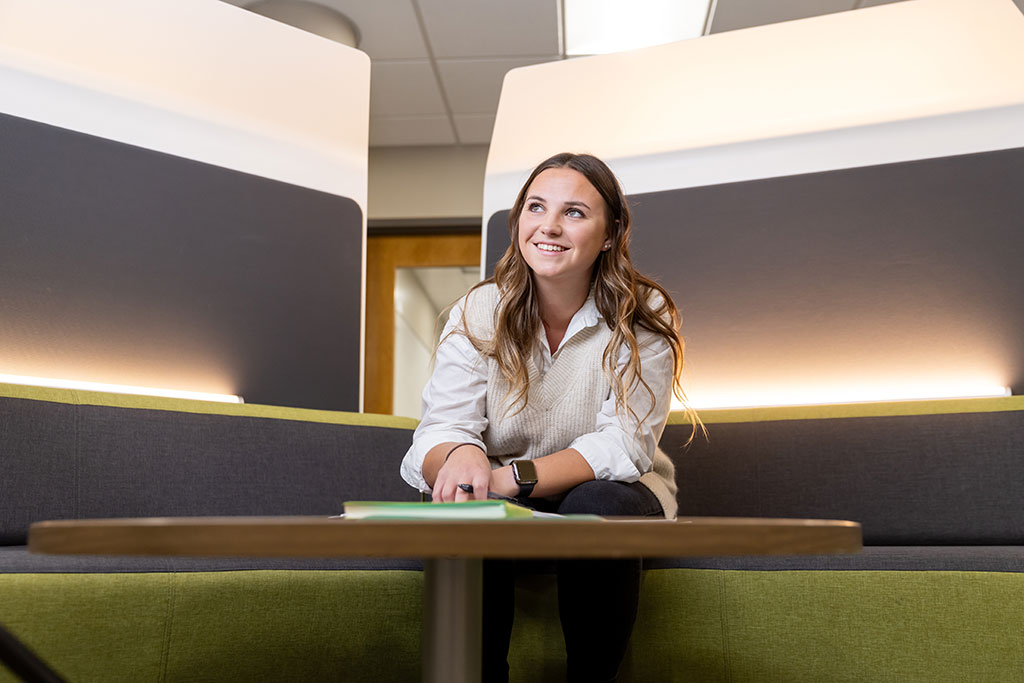
After graduation, Olivia's goal is to complete a Master’s in Teaching & Leadership and doctoral degree in Education.
Her research isn’t finished yet, but Olivia is certain the experience is going to help her with her ultimate career goal: to teach her students to love math as much as she does.
“It just shows the importance of exposing young students to all the different ways of learning and the many possible roads you can take with a math degree,” she said. “I don’t want math ever to be a roadblock for children. That just makes me sad. Math isn’t going away, so I want to fix it and make it better for all future generations.”
